Photo
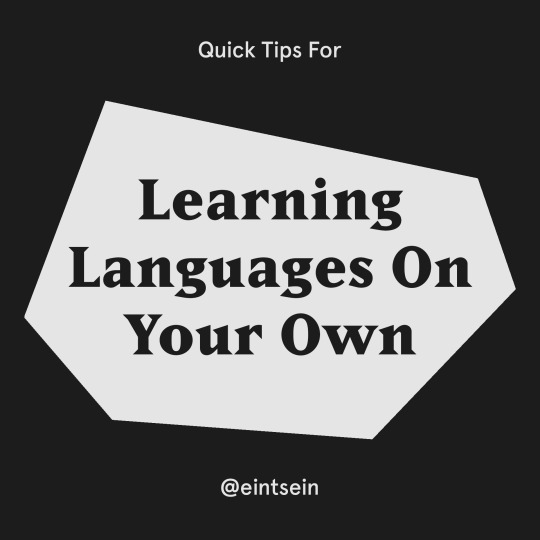
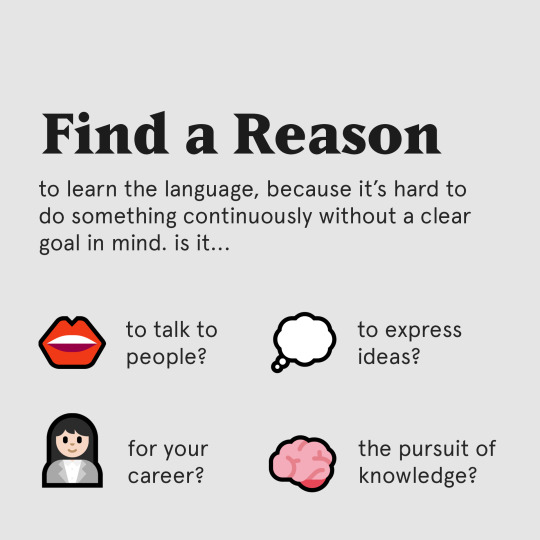
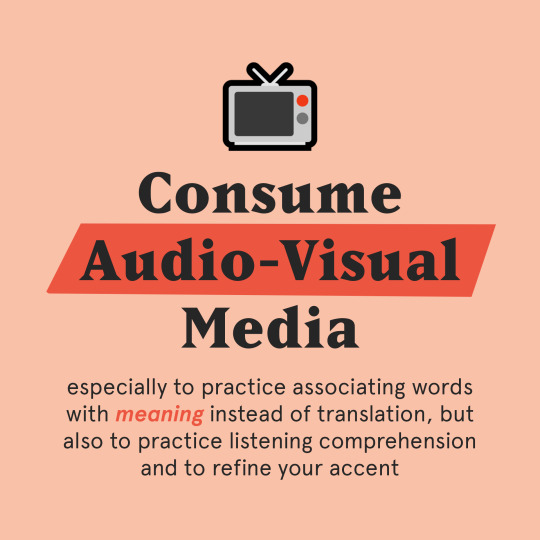
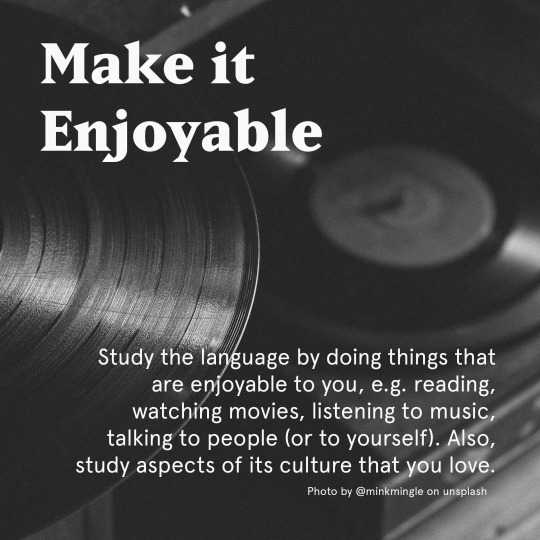
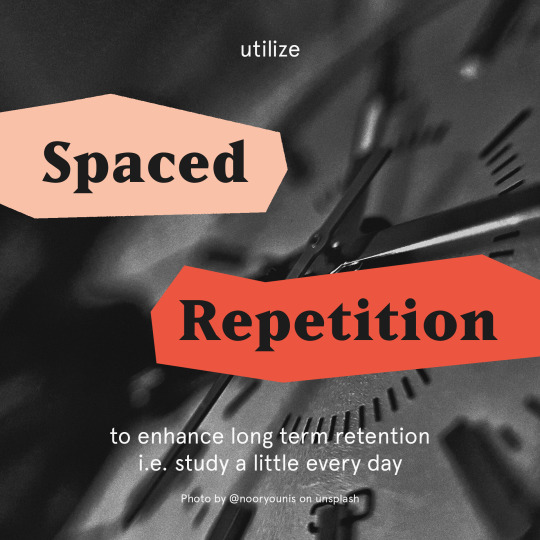

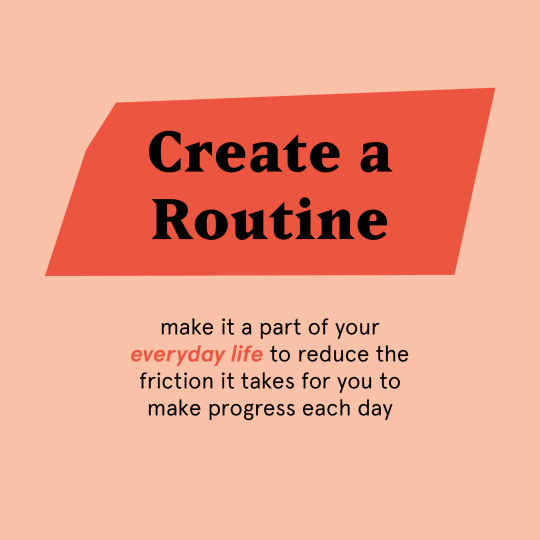
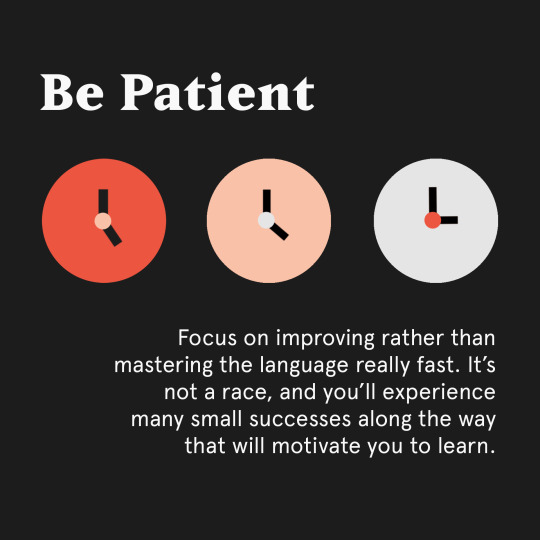
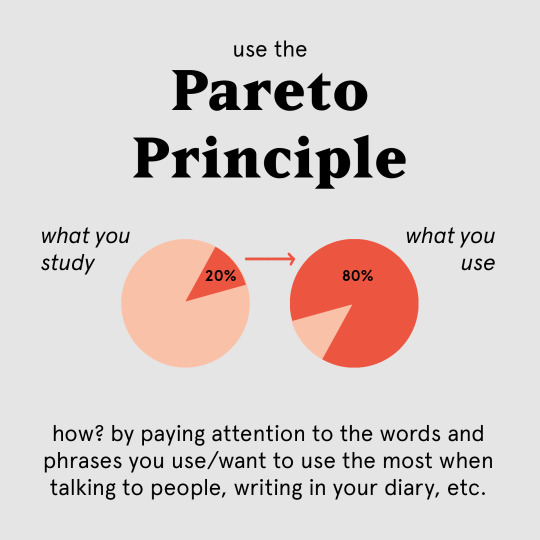
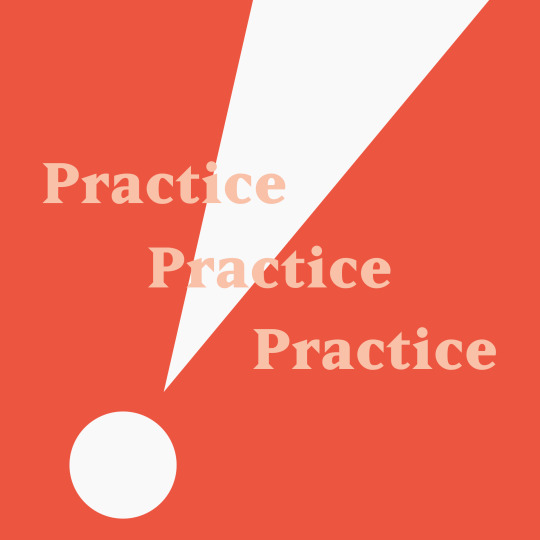
Quick Tips for Learning Languages on Your Own
Here are some mindsets and techniques that helped me study Italian on my own after classes ended. Hope this helps :)
Also, I’m trying out a new format for shorter posts–let me know what you think!
Text format below.
Keep reading
17K notes
·
View notes
Photo

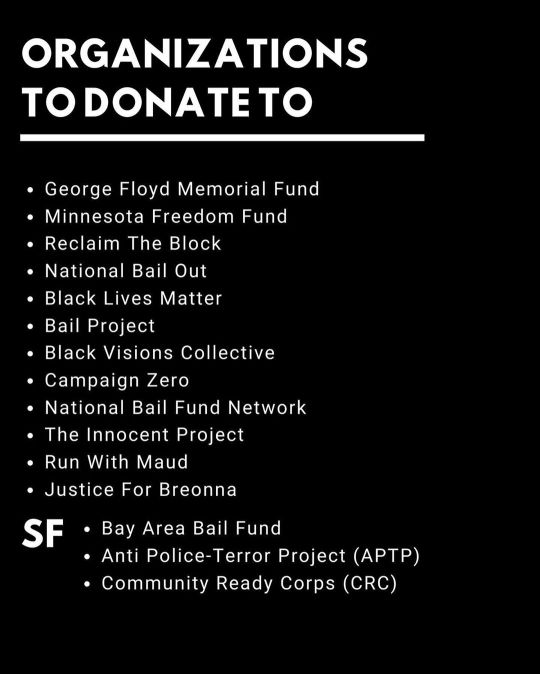
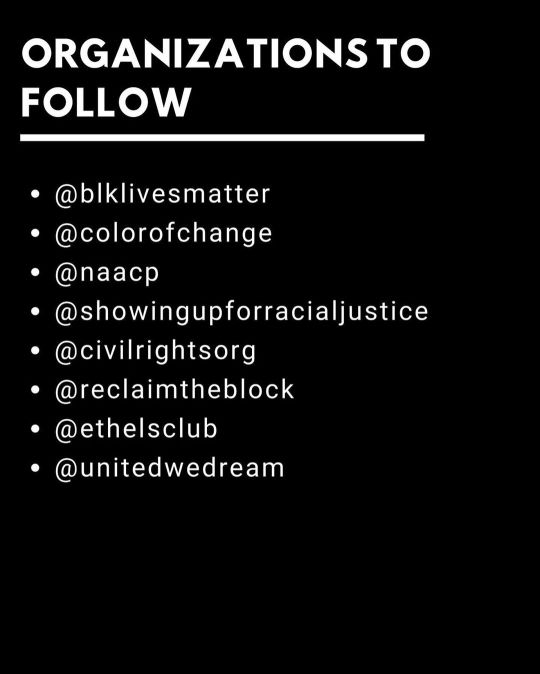

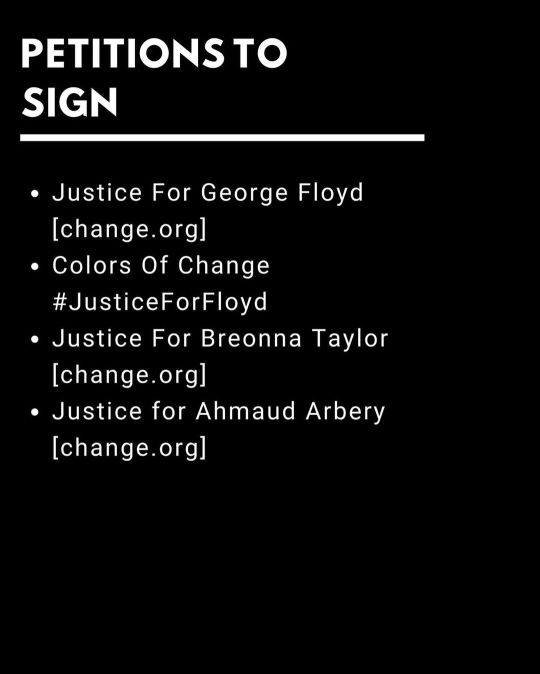
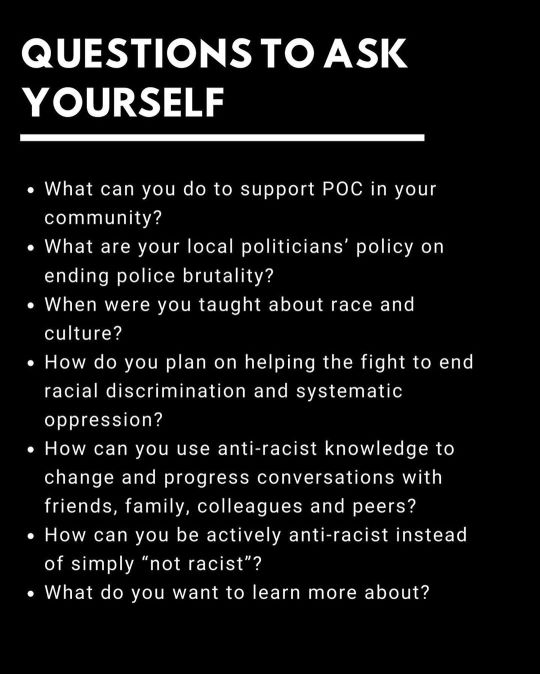
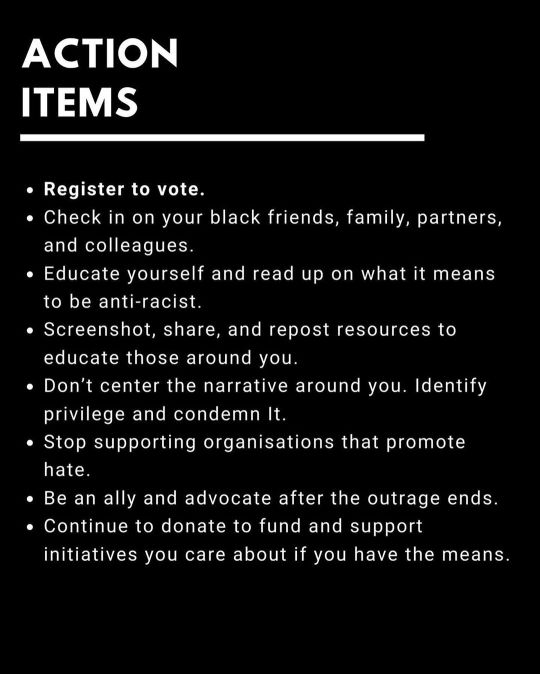
Hey folks, this is not your typical post about incorrect quotes.
I want to address a serious issue today, and most of you probably know what’s been going on in the US.
The killing of George Floyd started another serious and necessary debate on Police brutality in the states. (And I think not just there. Every country is affected in some way or another.)
My heart doesn’t ache, no. My heart is bleeding and crying out of pain about what has been going on for days now. What people have been going through for years and years. This is not the first case of police brutality against POC, nor the second, and it probably isn’t the last one.
It happened so many times already that I can’t count them all. Our world has lost so many beautiful souls to this never-ending issue. Additionally to this, we lost so many brothers and sisters of color who were part of the LGBTQ+ community too. Even though it is pride month, I can’t enjoy and celebrate it as much as I want to.
But now is the time to act. Now more than ever!
We all have a voice, and I’m sure as hell using mine.
And I want you to do the same.
40 Ways you can help right now shows you different techniques and approaches to support the #blacklivesmatter movement in various forms.
Everyone’s able to do something. Even if you don’t have the money to donate, or you’re not from the US, share articles, draw attention to it in some way. Being silent about this puts you on the side of the offenders.
I understand that I will never understand. However, I stand with all of you!!!
Credit goes to @sfbucketlist on instagram for these 40 ways you can help right now.
32K notes
·
View notes
Text






Resource is from victoriaalxndr on Twitter!
106K notes
·
View notes
Text
ways to help protestors if you are unable to protest
everybody has to do their part. as a reference, this was posted on 1 june 2020. if any links are broken or direct to a place they should not, please feel free to add on with corrections. if there is new information with better knowledge, please feel free to share. thank you.
1. donate
do not donate to shaun king. he has repeatedly collected money to “support” black people, but no one knows where the money is.
BAIL FUNDS (ALPHABETICAL ORDER; NOT A COMPREHENSIVE LIST)
note: washington dc and new jersey have cashless bail systems.
bail fund google doc (also includes lawyers for protestors)
national bail fund network (directory of community bail funds)
community bail funds masterpost by @keplercryptids
resistance funds (google sheets; lists bail funds around the country)
nationwide bail funds (split a donation to the bail funds listed on the linked page with a single transaction)
atlanta bail fund
brooklyn bail fund
colorado freedom fund
columbus freedom fund
houston chapter of black lives matter
liberty fund (nyc based; focuses services on people from low-income communities)
los angeles freedom fund
louisville community fund
massachusetts bail fund
minnesota freedom fund (as of may 30, 2020, they are encouraging people to donate elsewhere since they have raised enough money; as of may 29, 2020, they do not have a venmo, as some fraudulent accounts have been claiming, source)
philadelphia bail out fund
richmond bail fund
MORE PLACES TO DONATE
note: more links are listed in the masterposts below.
northstar health collective (healthcare and medical aid for people on the front lines)
reclaim the block (aims to redistribute police funding to help the minneapolis community)
twin cities dsa (provides fresh groceries and hot meals to people in minneapolis)
2. educate yourself
it isn’t enough to sign petitions and reblog/retweet/etc. nonblack people, including people of color, owe it to black people to educate themselves and correct themselves and the people around them on anti-blackness.
note: more links are in the masterposts linked below.
resources and tools regarding racism and anti-blackness (google sheets compilation)
readings on society, racism, the prison system, etc. (twitter thread)
“where do we go after ferguson?” by michael eric dyson
official black lives matter website
3. give out supplies to protestors
people need supplies to protest safely, and even if they bring supplies with them, they can often run out. if you’re able, stock up and hand them out to people protesting. for more supplies to donate, see the “george floyd action” google docs link in section 5.
water bottles (dehydration and heatstroke are not things people should have to deal with alongside bastard cops. if the police in your area are particularly violent or known to use tear gas, get the ones with the sports cap/suction-thing/etc so people can use them as emergency eye-flushes.)
snacks (make sure to take into account that people have allergies of all sorts. foods will have a little label that says “may contain” and then list any potential allergens. write the allergens on the ziploc (or any container you use) in permanent marker, or better yet, write the snacks included in the pack.)
masks (don’t forget there’s still a pandemic going on. also it will aid in deterring facial recognition when the police try to track down protestors, also part two, if the cops use tear gas, wearing a mask (with the combination of a scarf or bandana) will lessen the adverse effects. lessen, not stop.)
bandanas, scarves, etc. and goggles (ski goggles, swimming goggles, etc.) (see above for explanation on the scarves. same goes for the goggles. anti–tear gas and anti–facial recognition.)
clean shirts (for people who are heavily gassed. also helps deter recognition through clothing.)
wound care supplies (band-aids, packets of neosporin packets or a similar antibiotic, alcohol wipes, etc.; if you can, decant bactine into those little travel bottles.)
a sharpie or another type of marker (for writing bail numbers or emergency contacts on arms, hands, etc. it’s not enough to have your city’s bail fund number stored on your phone; the police won’t give it to you to look it up. give people a marker so they can write it down, preferably not washable so it isn’t easily removed.)
IMPORTANT: KNOWING FIRST AID
tear gas: if you’re hit, get out as fast and as soon as you can. take anyone you can with you. the longer you’re in the gas, the harder it will be for you to see, and it can irritate your airways, making it hard to breathe. if you’re hit, don’t run; it’ll only make things worse on your lungs. when you leave the area, take a cold shower. don’t use hot water (it will only reactivate the agent); don’t bathe (it will only spread the CS around). (source 1) (source 2) (cdc fact sheet on tear gas)
move them to a clean and ventilated area where it’s as safe as possible.
ask them if they’re wearing contact lenses. have them remove it. if they’re wearing glasses, rinse it with water.
solution of half liquid antacid, half water. spray from the inside going out, with the head tilted back and slightly towards the side being rinsed. if they say it’s okay, open the eye slightly while doing this. (source)
bullet wounds: the most important thing is to stop the bleeding. be sure to check for an exit wound and cover that as well. treat both wounds, but treat the worse one first.
stop the bleed (youtube video by uc san diego health)
first aid in active shooting scenarios
making a tourniquet (a commercial tourniquet is best, but improvised ones can work as well if done properly; the most important things to remember is that tourniquets are for limb injuries and are not meant for the head or torso and that they have to be very tightly wound on the injury.)
how to apply pressure dressings
miscellaneous
adult cpr tutorial (youtube video by cincinnati children’s; think of “staying alive” by the beegees or “uptown funk”)
4. be a source of information
be responsible with this. people’s lives are at stake. that being said, the media is a fucking joke and the best way to get accurate information in a grassroots rebellion is amongst ourselves. record everything, but if you are going to share any information at all, be sure to blur people’s faces.
signal (encrypted messenger app; messages delete after x amount of time): app store | google play
tool for scrubbing metadata from images and selectively blurring identifiable features
tech tips to protect yourself while protesting (by rey.nbows on tiktok, via vicent_efl on twitter)
cop spotting 101 (google docs)
know your rights (by personachuu on twitter)
NUMBERS TO CALL FOR ARRESTED PROTESTORS (ALPHABETICAL ORDER; SOURCES LINKED TO THE NUMBER)
remember to keep phones OFF unless absolutely necessary. cell phone towers, stingrays, location notifs can all be used to track you and other protestors. don’t fuck around. if your phone must be on, keep it on airplane mode as often as possible and only communicate using encrypted methods. no, snapchat doesn’t count. (a twitter thread on stingrays, for those interested)
lawyers assisting protestors pro-bono (by riyakatariax on twitter)
atlanta: 404-689-1519
chicago: 773-309-1198
minneapolis: 612-444-2654
5. miscellaneous links and links for protestors
masterpost of petitions to sign, numbers to call, places to donate, and more (carrd by dehyedration on twitter)
#blacklivesmatter (google docs by ambivaIcnt on twitter; includes information on relevant events, other masterposts, lists of petitions and donation links, how to protest safely and protests to go to, and more)
george floyd action (google docs; includes information on apps to download, supplies to buy and donate, places to donate to, protest safety, resources on unlearning racial bias, and more)
how to get out of ziptie “handcuffs” (by finnianj on tiktok, via katzerax on twitter)
how can i help? by @abbiheartstaylor
how to make a signal-blocking cell phone pouch
tips for protestors by @aurora00boredealis
twitter thread for protestors (by vantaemuseum on twitter)
also, if you’re protesting, change your passcode. make it at least 11 characters long and don’t use facial/thumb recognition.
128K notes
·
View notes
Text
reminder that this blog, while not politically focused, supports BLM. bootlickers and racists aren’t welcome here, and never will be.
245K notes
·
View notes
Text
HOW TO DONATE TO BLM WHEN YOU HAVE NO MONEY
a black woman named zoe amira posted a video on youtube. this video is an hour long and filled with art and music from black creators. it has a ton of ads, and in result will rack up a ton of revenue. 100% of the ad revenue from the video will be dispersed between various blm organizations, including bail-out funds for protesters. it will be split between the following, dependent on necessity
brooklyn bail fund
minnesota freedom fund
atlanta action network
columbus freedom fund
louisville community bail fund
chicago bond
black visions collective
richmond community bail fund
the bail project inc
nw com bail fund
philadelphia bail fund
the korchhinski-parquet family gofundme
george floyd’s family gofundme
blacklivesmatter.com
reclaim the block
aclu
turn off your adblocker and put the video on repeat. do not skip ads. let it play on loop whether you’re listening or not. mute the tab if you need to focus elsewhere. but let. it. play.
youtube will donate to blm for you.
youtube
please, please reblog. for people who don’t have money to spare, this is incredibly important information to have.
265K notes
·
View notes
Text
Polish Alphabet
I was making some notes about different pronunciations of polish letters and I thought I’d share! All the information comes from A Foreigners Guide to the Polish Alphabet which I highly recommended checking out. It’s “a unique animated presentation devoted to the Polish alphabet, its pronunciation and various trivia about the language” (Łukasiak, 2019).
Unless stated otherwise I’m comparing the Polish letters to English sounds/letters.
Same letters, different sounds
C (unless followed by an i) is pronounced ts.
W is pronounced v.
J is pronounced y.
Polish Diacritics
Ogonek means little tail and is responsible for nasalising two vowel sounds: ą and ę.
Kreska (acute accent) means either palatalization, as in ś and ć, or turns o into u.
Kropka (overdot) is only used with ż.
The slash across letters is used only with ł.
Ć is pronounced ch (as in China) but softer (russian ч). It is often found in infinitive verbs like pić (to drink), spać (to sleep) and wstać (to get up).
Ś is pronounced sh (as in shore) only much softer (russian ш).
Ń is a palatalized n, similar to the spanish ñ (but you can also find it in onion).
Ź, similar to ż but softer, has no english equivalent (but sounds like the russian ж).
Ć, ś, ń and ź have an alternative notation (but are pronounced exactly the same). Before a vowel, ć becomes ci, ś becomes si, ń becomes ni and ź becomes zi.
Ó is pronounced oo (as in moon). This means it’s pronounced the same way as the Polish u.
Ż is pronounced the same way as the s in mesure.
Ą is pronounced more or less like the on in wrong.
Ę is almost inaudible at the end of a word. In the middle of a word, it sounds like in in bin. (tbh this isn’t that accurate of a description, you really just need to listen to someone saying it)
Ł is pronounced like the w in wool.
Digraphs and Trigraph
Cz is pronounced ch (as in change).
Sz is pronounced sh (as in shape).
Rz, just like ż, is pronounced like the s in mesure.
Dz sounds close to ts, but sounds more like the end of heads.
Dż is pronounced like the g in gel.
Dź can be pronounced by saying d + ź.
Ch is pronounced like h.
Dzi is pronounced like dź.
2 notes
·
View notes
Text
I think I might try to start learning polish again! Might as well have one thing good come out of this quarantine :)
3 notes
·
View notes
Text
How to learn a language when you don’t know where to start:
General Plan:
Weeks 1 and 2:
Purpose:
Learn the fundamentals sentence construction
Learn how to spell and count
Start building a phrase stockpile with basic greetings
The Alphabet
Numbers 1 - 100
Subject Pronouns
Common Greetings
Conjugate the Two Most Important Verbs: to be and to have
Basic Definite and Indefinite Articles
Weeks 3 and 4:
Purpose:
Learn essential vocabulary for the day-to-day
Start conjugating regular verbs
Days of the Week and Months of the Year
How to tell the time
How to talk about the weather
Family Vocabulary
Present Tense Conjugations Verbs
Weeks 5 and 6:
Purpose:
Warm up with the last of the day-to-day vocabulary
Add more complex types of sentences to your grammar
Colours
House vocabulary
How to ask questions
Present Tense Conjugations Verbs
Forming negatives
Weeks 7 and 8:
Purpose:
Learn how to navigate basic situations in a region of your target language country
Finish memorising regular conjugation rules
Food Vocabulary and Ordering at Restaurants
Money and Shopping Phrases
Present Tense Conjugations Verbs
Weeks 9 and 10:
Purpose:
Start constructing descriptive and more complex sentences
Adjectives
Reflective verbs
Places vocabulary
Weeks 11 and 12:
Purpose:
Add more complex descriptions to your sentences with adverbs
Wrap up vocabulary essentials
Adverbs
Parts of the body and medical vocabulary
Tips for Learning a Foreign Language:
Learning Vocabulary:
What vocabulary should I be learning?
There are hundreds of thousands of words in every language, and the large majority of them won’t be immediately relevant to you when you’re starting out.Typically, the most frequent 3000 words make up 90% of the language that a native speaker uses on any given day. Instead try to learn the most useful words in a language, and then expand outwards from there according to your needs and interests.
Choose the words you want/need to learn.
Relate them to what you already know.
Review them until they’ve reached your long-term memory.
Record them so learning is never lost.
Use them in meaningful human conversation and communication.
How should I record the vocabulary?
Learners need to see and/or hear a new word of phrase 6 to 17 times before they really know a piece of vocabulary.
Keep a careful record of new vocabulary.
Record the vocabulary in a way that is helpful to you and will ensure that you will practice the vocabulary, e.g. flashcards.
Vocabulary should be organised so that words are easier to find, e.g. alphabetically or according to topic.
Ideally when noting vocabulary you should write down not only the meaning, but the grammatical class, and example in a sentence, and where needed information about structure.
How should I practice using the vocabulary?
Look, Say, Cover, Write and Check - Use this method for learning and remembering vocabulary. This method is really good for learning spellings.
Make flashcards. Write the vocabulary on the front with the definition and examples on the back.
Draw mind maps or make visual representations of the new vocabulary groups.
Stick labels or post it notes on corresponding objects, e.g when learning kitchen vocabulary you could label items in your house.
How often should I be practising vocabulary?
A valuable technique is ‘the principle of expanding rehearsal’. This means reviewing vocabulary shortly after first learning them then at increasingly longer intervals.
Ideally, words should be reviewed:
5-10 minutes later
24 hours later
One week later
1-2 months later
6 months later
Knowing a vocabulary item well enough to use it productively means knowing:
Its written and spoken forms (spelling and pronunciation).
Its grammatical category and other grammatical information
Related words and word families, e.g. adjective, adverb, verb, noun.
Common collocations (Words that often come before or after it).
Receptive Skills: Listening and Reading
Reading is probably one of the most effective ways of building vocabulary knowledge.
Listening is also important because it occupies a big chunk of the time we spend communicating.
Tips for reading in a foreign language:
Start basic and small. Children’s books are great practice for beginners. Don’t try to dive into a novel or newspaper too early, since it can be discouraging and time consuming if you have to look up every other word.
Read things you’ve already read in your native language. The fact that you at least know the gist of the story will help you to pick up context clues, learn new vocabulary and grammatical constructions.
Read books with their accompanying audio books. Reading a book while listening to the accompanying audio will improve your “ear training”. It will also help you to learn the pronunciation of words.
Tips for listening in a foreign language:
Watch films in your target language.
Read a book while also listening along to the audio book version.
Listen to the radio in your target language.
Watch videos online in your target language.
Activities to do to show that you’ve understood what you’ve been listening to:
Try drawing a picture of what was said.
Ask yourself some questions about it and try to answer them.
Provide a summary of what was said.
Suggest what might come next in the “story.”
Translate what was said into another language.
“Talk back” to the speaker to engage in imaginary conversation.
Productive Skills: Speaking and Writing
Tips for speaking in a foreign language:
If you can, try to speak the language every day either out loud to yourself or chat to another native speaker whether it is a colleague, a friend, a tutor or a language exchange partner.
Write a list of topics and think about what you could say about each one. First you could write out your thoughts and then read them out loud. Look up the words you don’t know. You could also come up with questions at the end to ask someone else.
A really good way to improve your own speaking is to listen to how native speakers talk and imitate their accent, their rhythm of speech and tone of voice. Watch how their lips move and pay attention to the stressed sounds. You could watch interviews on YouTube or online news websites and pause every so often to copy what you have just heard. You could even sing along to songs sung in the target language.
Walk around the house and describe what you say. Say what you like or dislike about the room or the furniture or the decor. Talk about what you want to change.This gets you to practise every day vocabulary.
Tips for writing in a foreign language:
Practice writing in your target language. Keep it simple to start with. Beginner vocabulary and grammar concepts are generally very descriptive and concrete.
Practice writing by hand. Here are some things you can write out by hand:
Diary entries
Shopping lists
Reminders
What could I write about?
Write about your day, an interesting event, how you’re feeling, or what you’re thinking.
Make up a conversation between two people.
Write a letter to a friend, yourself, or a celebrity. You don’t need to send it; just writing it will be helpful.
Translate a text you’ve written in your native language into your foreign language.
Write a review or a book you’ve recently read or a film you’ve recently watched.
Write Facebook statuses, Tweets or Tumblr posts (whether you post them or not will be up to you).
Write a short story or poem.
Writing is one of the hardest things to do well as a non-native speaker of a language, because there’s no room to hide.
There are lots of ways to improve your writing ability, but they can be essentially boiled down to three key components:
Read a lot
Write a lot
Get your writing corrected
28K notes
·
View notes
Text
The Really Big Studying Masterpost
I couldn’t get it together enough to do a graphic or anything, so here goes. Sorry this is massively long but hopefully it will be helpful!
Studying
Review season printables
The lazy kid’s guide to study guides
Studying tips for university
Non-cutesy study tips
How I make my study guides
My study process
Effective study routine for intense classes
How to “study”
50 things to do between your study sessions
Studying: how tos, advice, & tips
Learning styles and study tips
Motivation + tests/studying
My study tips tag
This has some stuff on exams
My exam tag
The pomodoro method
“How can I focus/study effectively?”
Get started studying
General exam/studying tips
Learning styles and study tips
Memorization
Using a mind palace
Memorization
Improving memory
Studying with a terrible memory
Memory tips
Last minute studying
Emergency study plan
More on late studying JIC
3 day study plan
Finals / exams
Oh-crap-finals-are-so-close masterpost
Last minute tips for finals
Ways to reset your mind
Examinations: reminders
The ultimate guide to final exams
Tips to focus on studying (finals)
Exam prep tips
I ran out of time (on a test)
How to remember everything for a test
Exams masterpost
What to do the night before an exam
What to do the night before an exam (2)
Standardized testing
Standardized testing
The imperfect guide on AP classes
Free SAT & AP prep
AP review set printables
Free standardized test prep
AP study resources
AP testing tips and tricks
AP cram packets
#1 tip for AP classes
SAT masterpost
The new SAT
Focus and productivity
Distraction-free studying
Do’s and don’ts of a good study environment
15 things productive people do differently
Concentration masterpost
How to concentrate
Studying 101: how to stay focused, motivated, and on track
How to stay focused
How to deal with being lazy in school
Study tips for the lazy student (1)
Study tips for the lazy student (2)
Being sick, focusing and studying effectively, & maintaining physical and mental health
A day of studying: tips
Productivity with a planner
Summer productivity
Waking up early and refreshed
Holiday productivity
Summer studying
My productivity tag
Burnout / motivation / procrastination
Doing homework when you’re sick
Studying with a lack of motivation
Burnout 101
How to start working when you really don’t feel like it
Got motivation?
General motivation
How to study when you don’t want to
Procrastination
Procrastination advice
Motivation
Motivation advice
Resource for procrastination
A very long list to help you survive school
How to stop procrastinating
24 tips to overcome procrastination
motivation.mp3
Ways to avoid burnout
Motivation (2)
How to self-motivate
My motivation tag
Mental health
Stress relief
Don’t let it ruin your education
Studying with depression
How to find peace as a student
Living and studying with anxiety
How to study with a mental illness
Depression/mental health resources
Managing stress for the overtaxed student
How to be less prickly when stressed
What to do when you don’t get the grades you want
What to do on a bad day
Why it’s okay to fail & how to deal with failure
Dealing with failure
I got a bad grade, now what?
What to do when you get a bad grade
Feel better
How to find peace as a student
How to love yourself
Calming and fun websites
Anxiety and negativity
A beginner’s guide to meditation
Taking finals with mental illness
My mental health tag
Self care
How to take care of yourself when you’re sick
How to stay healthy in inhospitable weather
Healthy studying
For people who struggle with self care, etc.
Self care cheat sheet
Finals self care (1)
All the self care
Small ways to improve your life
A self care masterpost to help you get through school
Finals self care (2)
Balancing a healthy lifestyle with studying
Hotlines/self care refs
101 self care ideas
My self care tag
+ self promotion (bc everyone seems to be doing this)
A masterpost of masterposts
College masterpost
Note taking masterpost
How to be the best student you can be
My study process
Lecture tips
Coping with obsession
Confidence
Money masterpost
My YouTube (not a studytube)
My Instagram (not a studygram)
31K notes
·
View notes
Text
I’ve said this before and I’ll say it again but it is absolutely an example of civilizational inadequacy that only deaf people know ASL
“oh we shouldn’t teach children this language, it will only come in handy if they [checks notes] ever have to talk in a situation where it’s noisy or they need to be quiet”
333K notes
·
View notes
Text
We need to talk about LingoHut
I’m supposed to be studying some Italian, but instead, I was googling in my computer how to learn a new language (no, googling how to learn will not teach you shit, you have to sit down and learn your target language not how to do it, I know but I’m lazy.) and I came across LingoHut, and I have to share it.
I don’t know if someone ever talked about this page, but if they did is worth mentioning again.
So basically you go to the website and in the Home Page you have to choose what is your first language and what language are you trying to learn.
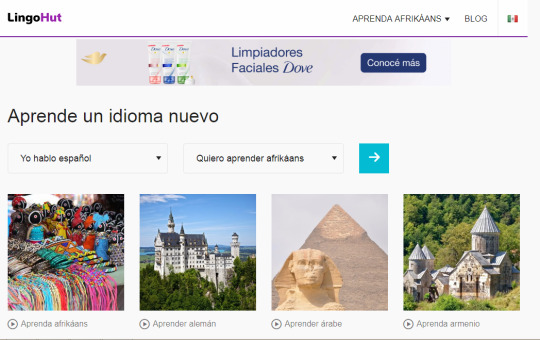
Once you choose it’ll take you to another page in which you have tons of lessons, for ex. In Italian, there are 109 lessons.
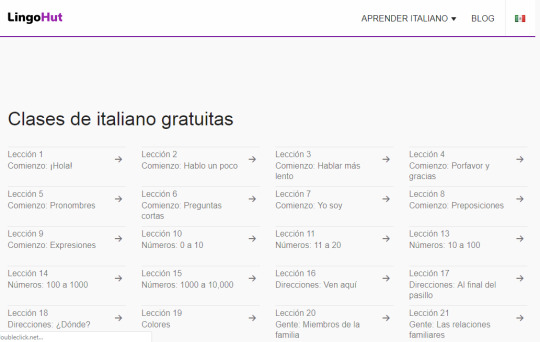
I haven’t checked every lesson yet but for example, the first one is greetings and such. You click that lesson and you have 16 flashcards that will show you the word in your target language and the translation, at the same time that someone pronounces the words.
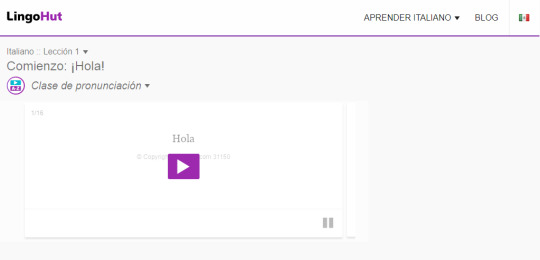
Below the flashcards, you have this ⬇️

And basically is a bunch of game, an easy matching words kind of game, some kind of tic tac toe with words, a memory game do you know the one that kids play in which they have to find the matching pictures? Same but with words and lastly a listening and matching game.
Below the bar of the games, we have the vocabulary list of the words we are taught in that lesson, and you can click the word and listen the pronunciation.
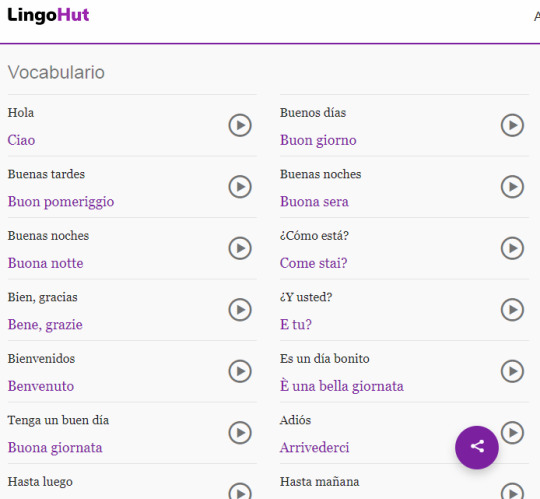
In the end, you have a bunch of the next lessons.
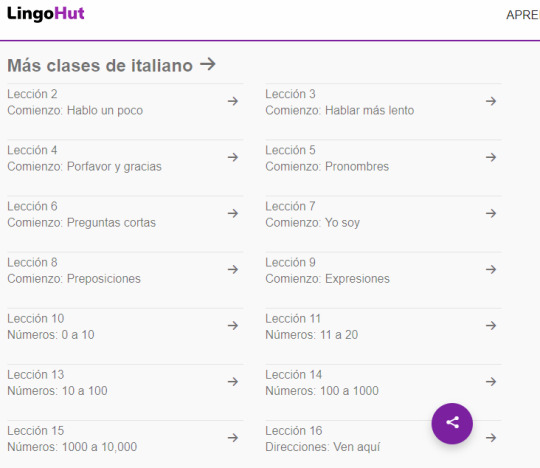
The lessons vary from the content it can be greetings, numbers, health stuff, office words, computer terminology, etc.
The website doesn’t have every language in the world, but it has a lot of them. choose your target language, in my case Italian, and enjoy, is fun and simple if you want to practice or do something related to your target language but you don’t have the willingness that day to study something more consistent like structure.
And the best part is that as far as I went looking around in this page it’s fucking free. Sure, you won’t end the one hundred and something lessons speaking like a native from whatever target language you’re learning, but it can be useful to expand your vocabulary.
11K notes
·
View notes
Text
who doesn’t love languages? or free resources? or free! language! resources!?
i was on duolingo, reading a discussion, and saw a link to a free swedish grammar book! and when i checked the website, there were loads of free language books in downloadable pdf form just waiting to be put in a tumblr post. i even used proper capitalisation for the book names! but that was shortlived, as i have a nonchalant online presence to consider.
Arabic- Grammar of Modern Standard Arabic, Colloquial Arabic (Levantine), Arabic: An Essential Grammar
Cantonese- Basic Cantonese, Intermediate Cantonese
Catalan- Colloquial Catalan
Croatian- Colloquial Croatian
Czech- Czech: An Essential Grammar
Danish- Colloquial Danish
Dutch- Dutch: A Comprehensive Grammar, Dutch: An Essential Grammar
English- Colloquial English, English: An Essential Grammar
Estonian- Colloquial Estonian
French- Colloquial French, Modern French Grammar, (another) Modern French Grammar, Student Grammar: French
Georgian- Georgian: A Learner’s Grammar
German- Basic German, German: An Essential Grammar, Intermediate German, Modern German Grammar, (another) Modern German Grammar, German Synonyms
Greek- Essential Grammar: Modern Greek
Hebrew- Modern Hebrew: An Essential Grammar
Hungarian- Hungarian: An Essential Grammar
Icelandic- Colloquial Icelandic
Irish- Basic Irish, Colloquial Irish, Intermediate Irish
Italian- Basic Italian Grammar, Colloquial Italian, (another) Colloquial Italian, Intensive Italian Workbook, Modern Italian Grammar, Modern Italian Grammar Workbook
Japanese- Colloquial Japanese
Norwegian- Colloquial Norwegian
Polish- Intermediate Polish
Portuguese- Portuguese: An Essential Grammar, Portuguese of Brazil
Romanian- Romanian: An Essential Grammar
Russian- Colloquial Russian, Contemporary Russian, Intermediate Russian, Russian Grammar
Scottish Gaelic- Colloquial Scottish Gaelic
Serbian- Serbian: An Essential Grammar
Swahili- Colloquial Swahili
Swedish- Colloquial Swedish, Swedish: An Essential Grammar
Tamil- Colloquial Tamil
Thai- Thai: An Essential Grammar
Turkish- Turkish: A Comprehensive Grammar
Yoruba- Colloquial Yoruba
obvious disclaimer: i don’t own any of the rights etc etc to any of the above etc etc, i just thought i’d share.
and while i’m here, if you want an actual free online course to do, FutureLearn has some language ones (as well as lots of other disciplines too!) i did a few modules of their Italian For Beginners which i really had fun doing and i learnt a lot of the basics- unfortunately they don’t offer those at the moment, but do check back as they introduce new courses all the time!
Open University offers loads of free courses, including some language ones. i haven’t done any language specific ones through OU, but i have done a few history ones which i enjoyed (although personally, i prefer the format and structure of FutureLearn, if i’m being honest).
Open Culture seems to have lots of language courses (48 languages, to be precise), although i have never personally used their resources they have been recommended to me, and they seem to offer a lot of languages not previously covered by any of the above, so it may be worth a look!
YouTube and Spotify also offer some good visual/aural learning resources which really helps with pronunciation, but you’d have to check for your specific target language. i am currently trying to learn swedish and italian (although i have fallen dreadfully behind in the latter) and i’ve found some useful things on both!
5K notes
·
View notes
Text
I just watched a kid break down in the bookstore because his books for the semester totaled $600 and that’s the american university system in a nutshell
750K notes
·
View notes
Photo
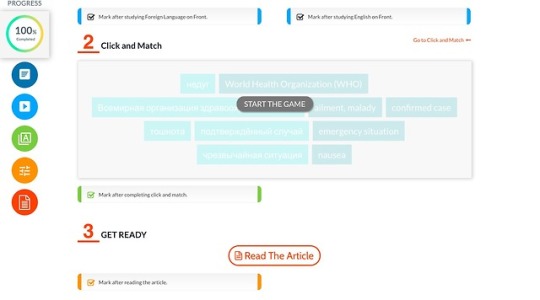
I was trying to brush up on my Russian, when I discovered a website called Foreigncy. It’s “a one-of-a-kind language training system for advanced level students and language professionals.” They currently have Russian, Arabic, and Hebrew available for English natives. (It looks like they used to have Persian, Urdu and Mandarin, but they haven’t been updated for a couple years.)
Users go through a three-step process: first, you’re given an English language summary of the foreign news article. Then, you’re given a set of vocab lists, flashcards and quizzes to prepare you for the vocab in the article. Finally, once you feel you have familiarised yourself with the vocabulary and the subject matter, they send you to a real-life news article.
Let me know what you think of this resource! Happy learning!
689 notes
·
View notes
Text
Courses in Russian online
Hi, babes.
A couple of days ago I found the official site of Pushkin Institute and it’s awesome. It is translated into several languages, e.g. English, Chinese, German, Spanish and others.
There are Russian courses for students of any level.
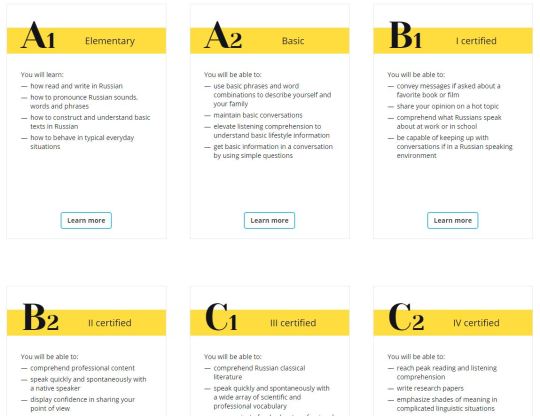
There are also lots of courses in Russian, for example, a course on cooking the Russian way, modern Russian art, Old Church Slavonic course and many other topics. Unfortunately, I don’t think there are subtitles for these courses and the courses themselves are in Russian, so I’d recommend them to people with B1+.
And here you can take a test to assess your level of fluency.
There’s also a site for children here. It has very simple materials so it might be suitable for A1-A2 levels. Here are words by themes and here is a little video on verbs of motion and here - on types of verbs.
3K notes
·
View notes
